Business
Here are the 82 startups from day 2 of Y Combinator’s S19 Demo Days

Team TechCrunch was back for Day 2 of Y Combinator’s Summer 2019 Demo Days where we heard from another massive chunk of startups that are taking disruption very seriously, even if they’re aiming to upend companies that only launched in Y Combinator a few classes ago.
The total class of on-record Demo Days launches came to 166 startups, after 82 presentations today. If you missed out on our tireless coverage yesterday, check that out too. We also picked our 11 favorites from yesterday’s batch here.
Here’s what we all saw today:
- Asher Bio: Starting off YC Day 2, this startup is trying to help your body stave off cancer. Asher Bio is building immuno-therapy drugs that ramp up your immune system to take on cancer cells. Existing therapies can lead to severe side effects, but the ex-Pfizer co-founders claim their early tests on mice have shown that they are “close to solving” the problem with 1,000x more precision than existing solutions.

- Talar: No more grocery shopping or grocery placing — Talar delivers grocery and meal-kits directly to customers. Dubbing itself a “last-meter delivery” business, the company actually delivers groceries directly into customer’s fridges. The company charges a $10 delivery fee as well as a 10% mark-up on each product it delivers. Talar has launched in San Francisco and has 90 customers today.
- spotLESS Materials: This startup created a liquid-infused coating designed to keep surfaces clean and repel anything, from water to poop. The coating itself is a super slippery surface that virtually nothing can attach to. spotLESS launched just two weeks ago and already has contracts and pilots in place worth $166,000. Some partners include the U.S. Navy and Pennsylvania State, which is using it in their bathrooms.
- Vendr.com: With so many SaaS companies saturating Silicon Valley, there’s a need for another SaaS company that will manage your other SaaS subscriptions. Purchasing software is a broken system, in that different customers pay different prices for the same software. Vendr created a self-serve process to help companies purchase, renew and manage their software subscriptions, and they’re targeting high-growth early-stage companies as early customers in what they say is a $10 billion market.
- Trella: Trella connects shippers to truck drivers in the Middle East to improve efficiency and increase transparency. The company says that shipping costs 3x as much in the Middle East as it does in the U.S.
- Business Score: Business Score is helping companies automate background checks on other businesses. The startup is looking to stamp out tired manual processes that largely mean picking up the phone and scouring documents. The single API taps data sources across the web to build out real-time profiles that can help customers scan businesses in an effort to prevent fraud, qualify leads and onboard new clients.
- Fit to Form: For women that struggle to find clothes that fit, Fit to Form has created an online shopping platform for locating clothes that fit women according to their exact measurements. The startup, like many in the batch, is founded and led by a pair of Stanford computer science graduates. Fit to Form says there are 52 million women in the U.S. that spend $660 per year online shopping — a big opportunity to solve the “online shopping industry’s biggest challenge.”

- Shiru: Shiru creates protein designed to replace dairy and eggs. Shiru leverages computational design to make new versions of the core ingredients that go into the food products we consume daily. Already, Shiru has identified seven viable protein candidates and has three letters of intent from major food and ingredient companies.
- Coco: Most money transferred from Venezuelan migrants back to their families goes toward food. Coco allows Venezuelan migrants to send food home rather than money. Coco says it is already making $10,000 in monthly revenue. The startup partners with mini markets to make food purchases and takes a 20% cut of their sales, allowing a commission-free outcome for customers. Coco’s founding team built the first bitcoin exchange in Venezuela.
- Arpeggio Bio: This startup provides an RNA-profiling technology for watching how medications work within the body. They call it a “debugger for cell biology.” With $750K in revenue this year, the company says they’re working with four of the top 10 pharma companies, including Novartis.
- Canix: The cannabis industry is growing rapidly, but unsurprisingly the farmers and government regulators are still figuring out how to navigate compliance smoothly. Today, farmers are having to manually tag every single marijuana plant they grow. Canix is building compliance software that helps farmers easily scan bar codes and send data to the government.
- Gen1E Lifesciences: One of several biotech startups to pitch Tuesday morning, Gen1E claims to cure inflammatory diseases. The company uses computational chemistry to identify drugs that work for specific illnesses. The company is launching with a focus on ARDS, which currently has no treatment. Gen1E says they are targeting a $100 billion market for inflammatory and age-related diseases.
- Embrace: Designed to help developers push better code, Embrace makes it easy for mobile developers to identify bad code and fix bugs faster. Already, companies like Wish, Goat, OkCupid, Headspace and Boxed use Embrace. The company has grown to $1 million in annual recurring revenue.
- Microverse: This company calls itself a Lambda school for software developers in emerging countries. The Microverse model doesn’t employ teachers, but uses a peer-to-peer learning model to prepare its student-engineers for the professional world. The company makes money with an income-share agreement, in which students pay 15% of their salary to the startup (although it did not specify for how long). The founder says that 50,000 people have applied to Microverse since it launched in January 2019, and 100% of its first cohort graduated with a job and is now paying them back. Microverse says it’s making an average of $6,000 per student. Because there are no teachers to pay, the founders are claiming 90% margins.
- Wingman: Wingman is a bot for phone sales representatives. It listens to sales calls and generates cue cards in real time to suggest possible answers/responses. Charging $80-$100 per month per rep, they’re currently seeing $5K in monthly recurring revenue, with 55% month-over-month growth.
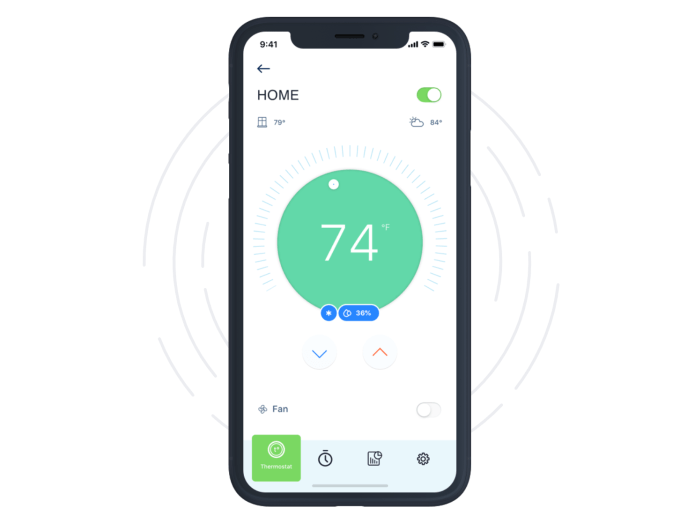
- Kraftful: Kraftful is aiming to help the companies making smart home devices make apps that are less awful. The startup was founded by former IFTTT team members and is looking to makes “white label” apps that can offer uniform UIs with regular updates. They are working with IoT companies on a SaaS pricing model and say they already have a $300K LOI from one firm.
- Encellin: This biotech startup has developed what it calls a “shark cage” to protect sells. The company, led by two PhD founders, will enter the clinic next year with a human trial focused initially on diabetes treatment. Ultimately, Encellin will go after all chronic disease with technology that treats missing, damaged or diseased cells with next generation cell transplants.
- Proof Trading: This is an institutional equities broker that aims to get investors better prices. Already, Proof has letters of intent from six top-tier funds. The total addressable market is $7.4 billion per year.
- Mudafy: This tech-enabled real estate startup considers itself the “Compass for Latin America.” In LatAm, selling and renting homes is a broken system, and an innovative solution could prove to be a $20 billion opportunity. Buyers and renters are hindered by bureaucratic policies that enforce high interest fees and expensive deposits. Mudafy wants to improve the renting and buying process with its software operations platform.
- Globe: Globe provides Airbnb-style home rentals, done by the hour. As an example use case, they mention traveling professionals that need private/quiet locations to work or take calls. The company says its current customers book an average of 2x a week.
- Cuboh: Restaurants have kind of been bombarded by the app-ordering economy and have a handful of tablets dedicated to each delivery app. Cuboh is building an app that integrates the order volumes from these apps into a single experience so that restaurants don’t need multiple employees approving multiple orders on multiple tablets.
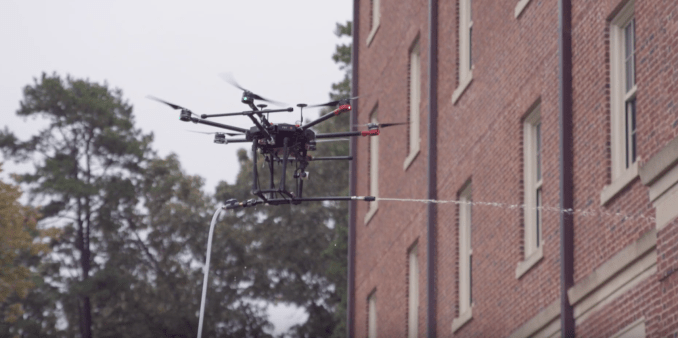
- Lucid Drone Technologies: Lucid builds drones that spray buildings with cleaning liquids and leases them out to cleaning companies for around $3K per month. They’ve currently signed contracts worth about $33K in monthly recurring revenue.
- MyPetrolPump: This refueling service delivers gas to cars, trucks and generators for B2B customers in India. Since launch, MyPetrolPump has become profitable and grown to a monthly gross merchandise volume of $500K across its 1,400 B2B customers.
- Narrator: Narrator is a full-service data team for startups of any size. The team behind Narrator built WeWork’s data infrastructure, and wants to target more startups as early customers. The company says they’re generating $91,000 per month with this business model, but they aren’t stopping there. Narrator wants to build as a cross-company universal standard for data and grow out this library of shared analyses. This strategy allows the company to repurpose the analyses they produce and offer it to new customers.
- GitStart: GitStart allows you to send small coding tasks (from JIRA, etc.) to its global network of developers. They charge a fee for each task — but if the developer does a good enough job that you’d like to hire them more permanently, GitStart also makes a commission.
- Hey Healthcare: More and more Americans are gaining insurance coverage for mental health services, but nearly half of therapist offices don’t take insurance, according to the team at Hey Healthcare, which is building automated medical billing software for therapists. The startup helps therapists get registered and bill insurers, they have already helped process $100K in insurance claims with early customers.

- PayMongo: This FinTech startup targets the Philippines. Specifically, the company is bringing innovation to the payments infrastructure in the country, where the technology is years behind. Companies integrate directly to PayMongo’s APIs or, they can use their pre-built checkout forms, shareable via URLs. The company has signed up 900 merchants since it launched in June.
- KubeSail: This cloud-hosting provider wants to be as powerful as AWS and as easy as Heroku. KubeSail is a deployment platform built on top of Kubernetes that’s experiencing 23% month-over-month growth. Today, about 3,200 developers have launched cloud applications on KubeSail.
- Zenith: This company is building a new virtual world that blends AI, VR and its backend tech to immerse users in new lives online. Zenith, which raised $120,000 on Kickstarter in one week, is the first cross platform world to exist on VR desktop and console. Essentially every screen you own is a window into their world. The company plans to monetize by taking cuts of every item bought or sold on their platform, like property and clothing. The founders have worked at Google and Unity, and co-produced with Oculus.
- Multis: Multis is a bank to help companies use cryptocurrencies (for things like recurring payments to remote workers) and earn interest on their savings. Twelve weeks after launch, the company says they’re managing more than $2.8 million in crypto. They charge a 1% fee on every transaction, and $900 per year.
- Vahan: The competing entities of the on-demand economy have some pretty major recruitment needs. Vahan is tackling the issue in India, helping companies like Uber and Zomato reach out to potential recruits via a WhatsApp bot. The startup is earning $20 per successful hire they recruit for their customers.
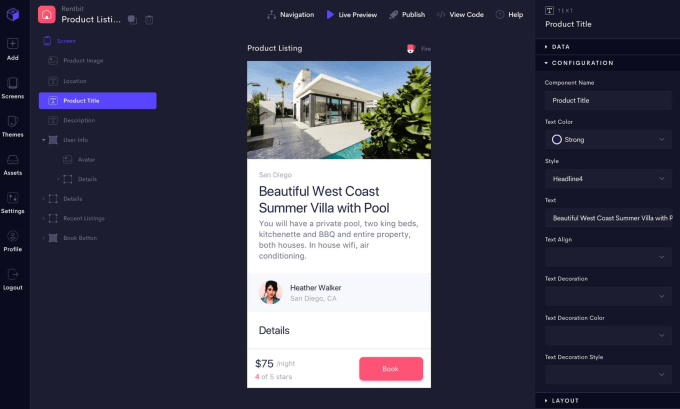
- Draftbit: This tool is for building apps that are high quality and built from scratch, the company said. Using Draftbit you can build apps visually with production-ready source code. The tool entered beta in February and has worked with 5,000 teams since. The idea is that by using Draftbit, software developers can build apps more collaboratively.
- Rejuvenation Technologies: If this startup gets its way, it’ll make it so we all live longer. Through extending the protective cap of DNA that functions as an aging clock, called telomeres, Rejuvenation Technologies aims to reverse aging. Rejuvenation’s drug extends telomeres and is already testing in animals, and says that one dose given to a mouse appeared to turn back the clock the equivalent of five years in humans. The founders envision a world where people take the drug to extend their healthspan and lifespans.
- Carve: Carve is a marketplace where people rent cars from dealerships. Right now, 12 million cars are idly sitting at dealerships, depreciating in value. Car sales have declined by 30% since 2014, and if dealerships want to stay alive, they’ll need to find new creative ways to make money. Carve’s founders also believe the rental car industry as it stands doesn’t need to exist, creating a $12 billion opportunity.
- Apurata: Apurata provides small loans for Latin America. They did 1,488 loans in July, earning an average of $21 per loan. The company’s founders say that banks in Latin America approve only 9% of loans, whereas Apurata is currently approving around 26% of applicants.
- TrustedFor: LinkedIn is just such an awful platform that there’s space for a startup to disrupt it by just remaking it. TrustedFor is building “LinkedIn 2.0,” a platform for professional profiles that is centered around recommendations from people that the users have actually worked alongside. The startup is leveraging the YC network pretty heavily to get associated companies on board.
- Data Mechanics: Claiming to be “the new Hadoop,” Data Mechanics is a tool for engineers. Their solutions automate performance tuning and other maintenance work for Apache Spark, an open-source computing framework. Ultimately, they plan to expand to provide an end-to-end platform in which data engineers write code and they run it for them. The service is currently live.
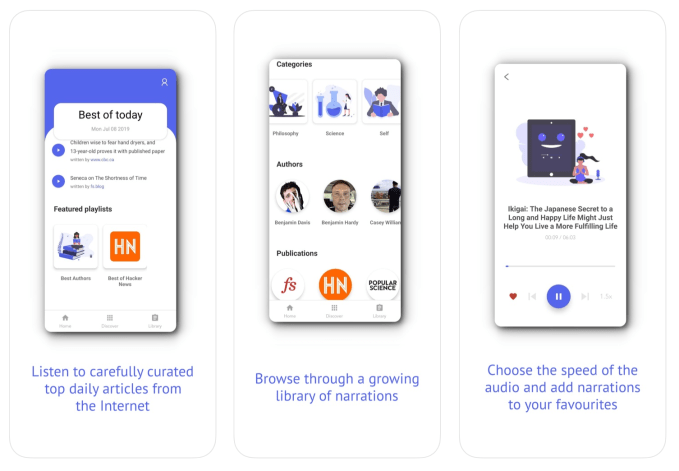
- Listle: Listle is a platform to listen to audio versions of stories on the internet. Listle, which launched in July 2019, has created a library of 900 audio articles. For customers, it costs $8.99 per month.
- Digi-Prex: This monthly medication delivery platform says it is up to 15% cheaper than local pharmacies. The company is targeting patients with chronic diseases in India and using WhatsApp to acquire its customers, of which it now has 5,000. With 60 million Indians spending $150 per month on prescription medications, the company identifies a $9 billion opportunity.
- Cloosiv: A Starbucks-style mobile ordering experience for smaller coffee shops, aggregating many indie shops into one app, Cloosiv currently has more than 250 coffee shops, and is adding roughly three new shops per day. We wrote about Cloosiv here.
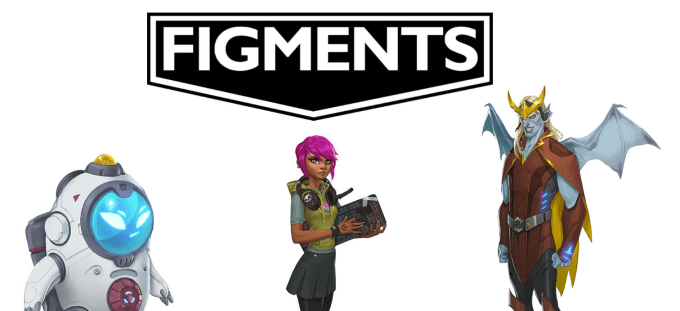
- Figments: Figments is looking to take the eSports market by storm with a network of virtual influencers that the team hopes can become the “WWE for eSports.” The team is creating characters with fictional storylines and is bringing custom voice acting to tailor the characters to different users around the globe.
- Vouch: Vouch provides business insurance to startups because “bad things happen to good startups,” the founder explained. Using Vouch, the insurance process starts at $200 per year which is apparently much cheaper than most products available on the market. Vouch also has risk management tools so companies can focus on company-building. Vouch has launched in Utah and will be in 10 states by the end of the year.
- Tandem: Tandem is a virtual office for remote teams that lets people see who is online, what they’re working on and who is available to talk. The software takes a Discord-like approach to letting users see what work apps their co-workers are in. Currently, Tandem has more than 450 active teams using the product and is seeing 50% weekly growth. Already, companies like Airbnb, Spotify, Dropbox and WeWork use Tandem.
- The Custom Movement: This company wants to make custom sneakers at more accessible price points. “If you’re rich or poor, you should be able to afford cool sneakers that you love,” says the founder. The Custom Movement wants to build out the world’s first marketplace for custom sneakers made by independent artists, following the assertion that “Nike is evil.” Within a few weeks of launch, Custom Movement has 70 artists selling 7,000 sneakers on its platform, and has brought in $26,000 in sales.
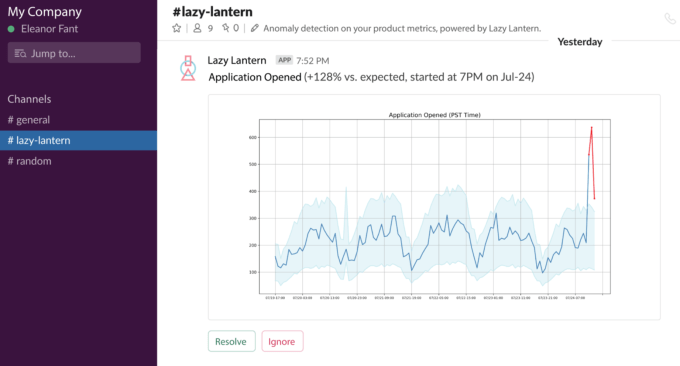
- Lazy Lantern: The startup analyzes your historical web app analytics and uses that knowledge to alert you if something unexpected happens (like traffic to a certain page suddenly spiking). You plug it into your existing analytics systems, and it’ll notify you via Slack if it detects an abnormality. They’re currently working 40 companies, and say they’ve received a letter of intent from Snap.
- Vitau: The online pharmacy craze is still in its infancy even after high profile M&A in the space, and Vitau is looking to get at the forefront of that market in Mexico. The startup is launching a subscription pharmacy for patients with chronic diseases. Just by approaching their first target market of those prescribed diabetes medications, they say they’re entering what could be a $12B market.
- Wren: This greentech startup helps people take action against climate change. Here’s how it works: users sign up on Wren and begin tracking their carbon footprint. Then, the company plants trees to make up for its users’ carbon footprint on a monthly basis. The company launched two months ago and has recently launched Wren as an employee benefit.
- Sequence Bio: Sequence Bio is a genome project looking to leverage genetic data to discover new drugs. The company says the best data comes from genetically isolated populations and those with uniform medical records — Newfoundland has both. So far, Sequence Bio has collected over 800 samples and is working with pharma and biotech companies to license data for drug development.
- Curtsy: Curtsy is targeting Gen Z clothing buyers with its mobile marketplace for resale items. The founder says that Gen Z shoppers have different buying habits than previous generations, in that they seek fashion built for rotation. Buyers want to sell last week’s outfit to fund next week’s outfit, and need a marketplace to rotate out items. Cutsy believes it can offer this service and eventually make $2 billion in the U.S.
- Refinery Labs: The startup is building a drag-and-drop interface system for deploying new features using linkable code blocks. Refinery says the functionality it adds is automatically scalable, secure, and stable. 2 weeks after launching, they have 43 paying companies onboard.
- TradeID: Yesterday, we saw a Robinhood clone for India, today we’re seeing that same model built for Indonesia. It’s also using fractional shares so that people can get skin in the game with minimal buy-in. The team says they’re live and compliant in Indonesia and have logged $500k in transactions since launch.
- Lofty AI Lofty AI is building what they claim to be the first reliable method for tracking neighborhood demand to help real estate investors make more informed investment decisions. Lofty AI recommends properties to investors and if the investors decide to purchase, they enter into a contract that gives them 20% of the profit. However, if the value of a property goes down, Lofty says they will cover all of the investors losses.
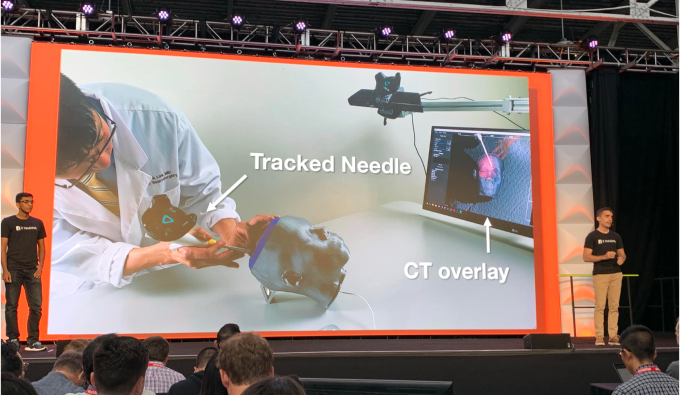
- Z Imaging: This startup is creating augmented reality guided tools for surgical procedures. The aim is to make surgery easier and more accurate by providing surgeons with an internal view of the body. So far, Z Imaging has received letters of intent from leading hospitals worth about $360,000. For hospitals, Z Imaging charges $15,000 per month. Z Imaging is in the pre-FDA submission phase but expects to conduct a clinical study this January, and hopes to receive FDA approval by the end of next year.
- Tensil: This startup turns machine learning models into custom chips that can replace GPUs. AI companies depend on machine learning, and are spending $3 billion on GPUs. This company produces auto-generated chips that it says are 50% smaller, 10 times faster and 20 times more energy efficient than GPUs.
- FeaturePeek: FeaturePeek is working on a tool to help developers/designers get feedback earlier in the development cycle. They build a test environment for every GitHub branch/pull request. Users can comment directly on the page, and use the built-in tools to take screenshots. They are looking to charge users $16-19 per user per month. We wrote about FeaturePeek here.
- Khabri: The podcast platform wave has washed over plenty of internet-immersed markets, but platforms like Apple Podcasts and Spotify lack traction in India. Many users are stuck with YouTube audio but Khabri is looking to build up a network of exclusive podcasts with 2,500 creators. The team already has 60,000 DAUs who use the app an average of 20 minutes per day.
- Mindset Health: This startup founded built by two brothers is seeking to treat IBS using hypnotherapy. Mindset Health says they’ve already helped over 280 people improve their IBS, earning $5,600 in monthly recurring revenue. They claim IBS is a $3 billion market in the U.S. Mindset plans to scale its service to provide treatments for other issues, including anxiety and chronic pain.
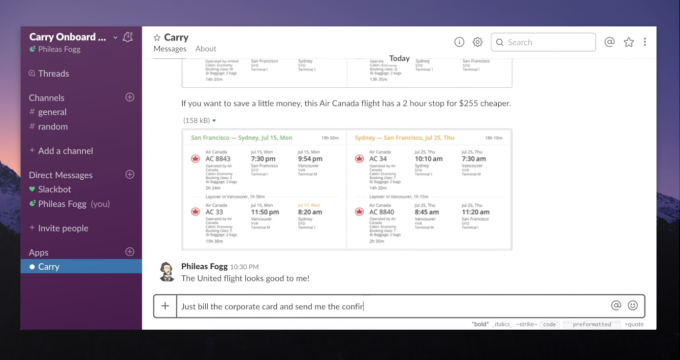
- Carry: Carry is a corporate travel assistant that helps you plan, book and offer support — all via Slack, but using real humans. This month, Carry has booked $160,000 worth of corporate travel. Current customers include Segment, Orthly, Stanford Graduate School of Business and others.
- Treble.ai: A customer support platform that lets companies get feedback from users through SMS and WhatsApp. The company describes itself as similar to Qualtrics and Zendesk, but with one big difference: Qualtrics and Zendesk were built for desktop web and email. Treble is built for mobile-first, chat-based communication. Treble says there are 100,000 companies that serve their users through mobile apps, and it wants to be the startup that manages their customer support. The startup scored Colombian logistics unicorn Rappi as their largest customer, and is seeing $16,000 in MRR.
- AudioFocus: This team helps users hear their friends in noisy environments like restaurants and conferences. Their app builds a fingerprint of your friend’s voice (or “voice prints” as they call them) based on a few minutes of recorded speech, then filters out other sounds and voices that don’t match this fingerprint and plays this edited audio stream to the user through headphones.
- Mighty Health: Mighty Health is creating an app that replicates some of the experiences of cardiac rehab centers. Insurance companies are paying for people who have suffered from heart problems to get healthier and avoid further hospital trips, but many patients complain about the cardiac rehab programs being too far away or too inconvenient to access. There’s an app for that.
- Asayer: Asayer’s software shows video of everything a company’s customers do on its software to identify bugs. It’s like looking over your user’s shoulder, the company’s founder explains, making it much easier for teams to instantly identify where the problems in their code are. Asayer’s vision is to go after the $10 billion market of people developing web apps. Asayer launched in June and says it has tripled its revenue since then.
- Gmelius: Gmelius is a Gmail tool built to help teams manage projects, operate a help desk and automate daily processes. The team aims to replace Mailchimp, Asana, Trello, Zendex and many more by integrating with your Gmail inbox. Gmelius currently has 100,000 daily active users taking with $180,000 of monthly recurring revenue.
- Mipos.dev: This team is building a restaurant operating system for Latin America-based businesses. The Latin America point-of-sale market for businesses is worth $2 billion. Online ordering apps represent 20% of restaurant sales in Latin America, but restaurants don’t have passable hardware or software options to manage this growing demand. Multiple tablets are needed for multiple services and there’s no centralized software to help businesses manage online ordering. mipOS wants to be a one-stop-shop management system for restaurants.

- Voyage Biomedical: (IMAGE) Voyage Biomedical is creating a system which the company says limits brain damage during an ischemic stroke — where a clot prevents blood flow to the brain — by quickly cooling the brain until doctors are able to remove the blockage. They’ve tested the device on a pig while stopping blood flow to the brain; they say the pig survived, and made a full recovery. Co-founder Robert Schultz is a cardiac surgeon.
- LineLeap: What OpenTable is for restaurants, LineLeap wants to be for bars and nightclubs. The company is the app experience for alcohol, people can pre-order drinks or pay to skip the line at a particularly packed bar. The teams says that they’ve amassed $30k in MRR and helped 1 customer earn an extra $25k per month just by letting customers pay to skip lines.
- ReverCare: This company has created a platform for helping people care for their aging parents. ReverCare connects families to social workers, who in turn connect them to eldercare services and help with senior living and care logistics. The company says they are going after a $13 billion market.
- Hutsy: Hutsy is a real estate brokerage that aims to make it easier to buy houses through an online experience. Since launching four weeks ago, Hutsy has closed on three homes. Instead of hiring more real estate agents, Hutsy scales through its automation software.
- Eden Farm: Eden Farm delivers fruits and vegetables to restaurants in Indonesia. Restaurants are still purchasing poor-quality produce, and Eden Farm thinks it can replace the local middle-man in this equation while simultaneously helping local farmers. The platform provides a way for farmers to forecast the market demand for their produce. This isn’t a new idea; EdenFarm wants to be the Sysco for Indonesia and eventually expand to neighboring areas in Asia. Eden Farms pegs the market opportunity at $30 billion.
- Beacons AI: Beacons AI is letting users further monetize their fandom. It’s a payments platform for influencers that allows users to pay to ask these influencers questions and receive short video responses. Beacons takes 25% of every transaction.

- Monaru (IMAGE) People are lightly connected to lots of people on Facebook, Monaru is aiming to help customers foster closer bonds with a few close friends or family members. Monaru is building a virtual assistant for people’s personal relationships. The company’s app prompts people to connect with their closest friends and helps them reach their personal goals for their friendships.
Shift Health: Subscription-based revenue cycle technology tailored for the healthcare industry. The business is the second from the founders, who claim to have built the best accounts receivable software for hospitals and clinics.
DirectShifts: Connects doctors to hospitals for short-term shift work, with 51 hospitals on board so far. DirectShifts uses technology to decrease the hiring onboarding process to two weeks and makes $5,000 per doctor per month. DirectShifts currently brings in $65,000 in net revenue per month and has a GMV of $435,000.
Flux This startup enables Latin America-based merchants to accept payments with mobile wallets. Rappi gives people digital wallets, Flux makes it possible for merchants to accept these payments. They are able to process payments without intermediaries like Visa or MasterCard, signifying its intention to grow into not only a service, but a payments network. Flux’s tech is live in 32 restaurants a few weeks after its launch, and the founders say that 800 more are about to go live.
Midtype: Midtype is building backend engineering as a service, meant to allow frontend developers build more without the need for backend engineers. The founders say that 80% of backend features needed by most apps (the databases, payment systems, etc) are the same, so they provide it or make it easily addable.
Waves: Waves is creating a dating app with a focus on matching users with specific sexual fetishes. The company launched a few days ago and already has signed up 750 users. The company says that their market opportunity could be 15 times the size of Grindr.
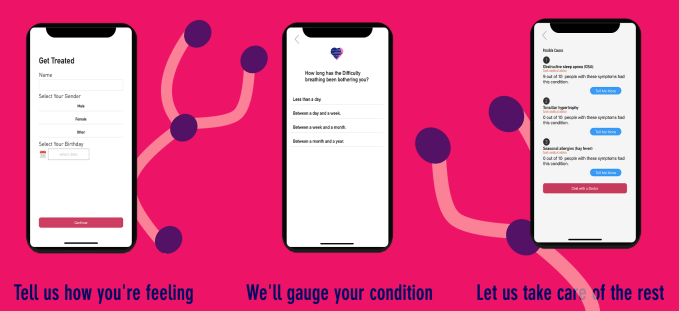
Symplex: The team is developing an AI-based doctor that can diagnose you using your smartphone. The startup says they’ve signed up 15 doctors in the first few weeks, with a goal of expanding into a $2.6 billion market. Here’s how it works: first, you tell Symplex how you’re feeling, then, the company’s machine learning algorithm gauges your condition and provides a detailed initial diagnosis, which is then stored and saved.
Boost Biomes: Boost Biomes has a spray treatment for crops that prevents mold for up to 11 days. Currently, Boost Biomes has more than $1 million worth of letters of intent with customers who will be able to either use the product in the field or after harvest.
Percept.AI: This startup is creating an AI support agent that immediately resolves common customer support tickets. Other solutions can take over 3 weeks of onboarding, quality is often insufficient and the AIs only end up resolving between 10-30% of tickets. Percept.AI says their tech could work to identify 1.2 billion support tickets that go outstanding. They say they can immediately resolve up to 50% of tickets without human intervention, what it describes as an exciting $22 billion market.
Covela: Covela is an online insurance broker for small/medium businesses in Latin America. The company says it saves customers 40% over competition in the region.
Stoic: Stoic is an emotional tracking app that checks in with users twice per day to better understand how they are feeling and what obstacles they’re up against. The app guides its “thousands” of users on how to de-stress, feel less angry and improve relationships. Stoic, which charges $70 upfront for an entire year, says its revenue is growing 52% month over month, citing 40% retention rates.
Dover: Dover is a hiring platform that is entirely automated. The software is designed to understand the skillsets your company is looking for and then engages in outbound recruiting. Dover’s candidate sourcing tech has cut humans out of the process, which the company says improves margins. Dover currently has 18 paying customers and is doing $68,000 a month in revenue.
And that’s a wrap!
Thanks for reading through the full list, we’ll be scouring through our top picks for a post coming soon and we’ll be back at Y Combinator Demo Days next year for their winter 2020 class.
-

 Entertainment7 days ago
Entertainment7 days agoWhat’s new to streaming this week? (Jan. 17, 2025)
-

 Entertainment6 days ago
Entertainment6 days agoExplainer: Age-verification bills for porn and social media
-

 Entertainment6 days ago
Entertainment6 days agoIf TikTok is banned in the U.S., this is what it will look like for everyone else
-

 Entertainment5 days ago
Entertainment5 days ago‘Night Call’ review: A bad day on the job makes for a superb action movie
-

 Entertainment5 days ago
Entertainment5 days agoHow ‘Grand Theft Hamlet’ evolved from lockdown escape to Shakespearean success
-

 Entertainment6 days ago
Entertainment6 days ago‘September 5’ review: a blinkered, noncommittal thriller about an Olympic hostage crisis
-

 Entertainment6 days ago
Entertainment6 days ago‘Back in Action’ review: Cameron Diaz and Jamie Foxx team up for Gen X action-comedy
-

 Entertainment6 days ago
Entertainment6 days ago‘One of Them Days’ review: Keke Palmer and SZA are friendship goals
















